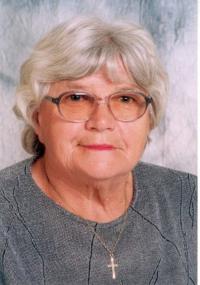“No matter what anybody says, we were really surprised by our Czechoslovakian army not actually facing the Germans.”
Emilie Kozáková was born in 1926 in the village of Sklyn in the Volhynia. She was the oldest of seven children and attended a Polish school where she encountered the Ukrainian resistance against Czechs. Since childhood she has been a great patriot. In 1943 she witnessed the burning down of Český Malín. In June 1944 Emilie Kozáková signed up to the 1st Czechoslovak independent brigade and was assigned to the field post. She took part in the battle of Krosno and Dukla where she suffered an injury but refused to be transported to the USSR. In May 1945 she participated in the liberation of Prague. She was awarded the Order of the Red Star after the war. She lived in Řídeč in the Olomouc region and her children and grandchildren made up for all the suffering she had to go through during the war. She died in 28th october 2013.

